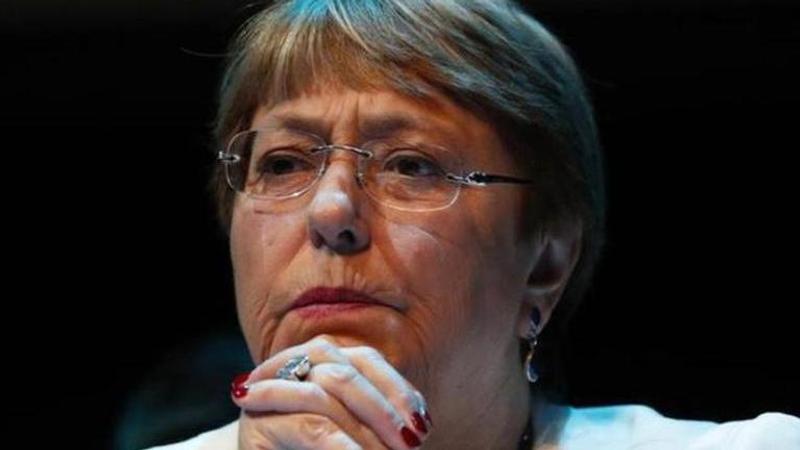Published 20:19 IST, September 8th 2020
UN rights chief urges "independent" Russian probe into Navalny poisoning
UN rights chief Michelle Bachelet urged Russia to cooperate in an independent probe into the alleged nerve agent attack on Russian opposition leader Navalny

On September 7, the UN rights chief Michelle Bachelet urged Russia to cooperate in an independent probe into the alleged nerve agent attack on Russian opposition leader Alexei Navalny. In an official statement on the UN’s website, Bachelet said, "The number of cases of poisoning, or other forms of targeted assassination, of current or former Russian citizens, either within Russia itself or on foreign soil, over the past two decades is profoundly disturbing.” She further pushed for a “thorough, transparent, independent and impartial” investigation.
A high-profile critic of Russian President Vladimir Putin, Navalny is currently coalescing in a Berlin hospital. He is now responding to speech and has been out of the coma, the Charite hospital at Berlin announced in a statement. Bachelet said in the statement that the German hospital's report confirmed that Navalny had "unequivocally" been poisoned. However, Kremlin openly rejected accusations that Russian leader Putin was responsible for the poisoning of his political rival Alexei Navalny. In an address to the press, Kremlin said there were no grounds for sanctions to be imposed against Moscow or criminal investigations. It further trashed the allegations of “intentional poisoning” of Navalny by Russian authorities. The Russian government accused the Russian doctors and pro-Kremlin media of the fabrication of the victim’s deliberate poisoning narrative that outraged Navalny's allies who held the Kremlin responsible for poisoning the critic.
UN rights chief, however, stated that it wasn’t enough to simply deny the accusations of poisoning on part of Russia. She added that Navalny was someone who needed state protection, despite being a political rival against the Russian government. Bachelet further said that a lack of legal processes in a case previously in Russia has eventually led to "close to total impunity."Germany confirmed the nerve agent Novichok poisoning as the cause of Navalny’s coma and termed it as “an attempt to murder,” prompting condemnation against Russia worldwide by the international communities—including the UK, US, France, and Norway.
"The OPCW continues to monitor the situation and stands ready to engage with and to assist any States Parties that may request its assistance,” OPCW Director-General Fernando Arias said in a statement.
Moscow asked for "explanation"
Germany’s chancellor Merkel called for a thorough Russian investigation as the EU, NATO, and several Western governments have asked Moscow to provide an explanation. Russia accused Berlin of failing to share “solid evidence”, while the German Chancellor in a presser announced that a German military lab identified and confirmed that the poison in Navalny's system is a variant of Novichok, a Soviet-era nerve agent.EU's foreign policy chief Josep Borrell asked Russia to cooperate with an international probe, asserting, that the 27-nation bloc would not rule out sanctions.
(Image Credit: AP)
Updated 20:19 IST, September 8th 2020






